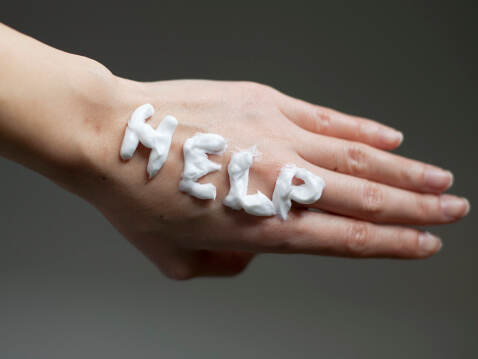The 7 Winter Beauty Secrets You Need to Know for Treating Dry Skin

Got dry skin? Read these skin soothing tips and your skin will thank you.
Winter can be tough, not just on your social life, but also on your skin. The cold, dry air pulls more moisture from your skin, leading to itchy, scaly patches. The classic winter-type clothing can also be quite irritating for sensitive skin, and combined with hot showers, skin is prone to cracking and flaring conditions such as eczema, atopic dermatitis or rosacea.
Here, 7 tips to help protect your skin this winter, making the wait for summer a little more pleasant.Â
-
Be Ingredient Savvy: Add skincare products containing either ceramides or hyaluronic acid as ingredients into your regimen. These skin care ingredients help skin lock in more moisture and maintain a healthy barrier, decreasing the chance that cold winter air will break it down. Great products include Neutrogena HydroBoost Gel-Cream, and CeraVe Lotion.
-
Add Moisture: Use a humidifier in your office and bedroom to hydrate skin in the colder months. Humidifiers replace moisture into the air, which is vital during months where heaters and colder dry climate draws moisture from your skin. Using humidifiers can help mitigate dry air in the home, and assist in maintaining a healthier skin environment. For optimal safety, it’s important to remember to perform regular cleaning and maintenance of the humidifier, and to turn it off when you’re not home.
-
Lock With Socks: Apply Aquaphor or AmLactin onto heels every night then put on a pair of socks to lock in moisture while you sleep. Occlusion of topical products will help them penetrate deeper into the skin. Use this to your skin’s advantage by applying creams and ointments on dry areas and then covering them before bed. Both Aquaphor, or Amlactin (if you want something a little lighter), help maintain smooth, moisturized skin and will prevent heels from cracking and splitting.
-
Keep it Soft: Heavy, rough fabrics, most especially wool, are popular when the temperature drops, but unfortunately are quite irritating to dry and sensitive skin. Swap out these fabrics for softer, less brittle fibers, such as cotton, silk and cashmere.
-
Decrease time in the shower: Although it sounds paradoxical, water will actually dry out skin. The longer the shower, the worse your dry winter skin will feel. Keep it short, and save your deep thoughts for another place. Your skin will thank you.
-
Cool it Down: Decrease temperature in the shower. As tempting as it is to take a nice hot shower, the hotter the water, the worse it is for your skin. Hot water strips natural moisturizers and oils from the skin. The hotter the shower, the worse it is. Turn down the temp and choose a lukewarm or warm temperature instead.
-
Say No to Foam: Swap out foaming harsh soaps for mild non-foaming cleansers. Generally, there’s no real necessity to soaping the entire body. Focus on bacteria-harboring areas such as the armpits, groin and feet, using a mild cleanser such as Dove Beauty Bar or CeraVe Hydrating Cleanser. Stronger soaps will dry skin out, washing away part of the protective moisture barrier with each shower.Â
Dr. Rachel Nazarian is a medical and cosmetic dermatologist treating patients in our Murray Hill dermatology office in New York City. Book an appointment with Dr. Nazarian.

